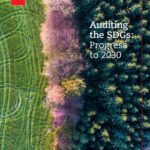The Global Reporting Initiative (GRI) today opened the doors for the Amsterdam Global Conference on Sustainability and Transparency, the worlds largest gathering of leaders, thinkers and doers in the field of sustainability reporting. At the fully booked conference, close to 200 speakers from business, finance, politics and civil society debate and share their views with the 1,200 participants on how to achieve a transition to a sustainable economy.
During the Opening Plenary, GRIs Chief Executive Ernst Ligteringen outlined two goals for the next decade. Firstly, GRI proposes that environmental, social, and governance (ESG) reporting should become a general practice to help markets and society take informed and responsible decisions. GRI advocates that by 2015 all large and medium-sized companies in OECD countries and fast-growing emerging economies should be required to report publicly on their ESG performance, or if they dont, explain why.
Secondly, GRI proposes that ESG reporting and financial reporting need to converge over the coming decade. GRI advocates that a standard for integrated reporting should be defined, tested and adopted by 2020. GRI is working with leading global organizations in financial markets, accounting, corporate responsibility, ESG reporting, and civil society to establish the International Integrated Reporting Committee. The committees purpose is to promote integrated reporting, and to facilitate and coordinate collaboration between key institutions to develop an integrated reporting standard.
Conference participants were invited to debate the role GRI should play in the development of integrated reporting. The GRI Chairmans closing remarks on Friday 28 May 2010 can be expected to reflect the initial views that emerge from this debate.
On a more short-term level, conference participants were the first to be informed about the G3.1 content proposal including Human Rights, Community, and Gender related thematic revisions. These revisions will make GRIs current G3 Guidelines more relevant, transparent, and specific, without adding extra complexity to the reporting process. The G3.1 revisions are available for public comment for 90 days from 26 May until 23 August. The recommendations have been developed by three different international multi-stakeholder Working Groups with representatives from a range of organizations and a diverse number of geographies including among others Australia, Brazil, Chile, Denmark, India, Mongolia, South Africa, the UK, and the USA. Sustainability reporting practitioners and their stakeholders are encouraged to provide feedback on the G3.1 content proposals via an online public survey at http://bit.ly/b6cwVv.



